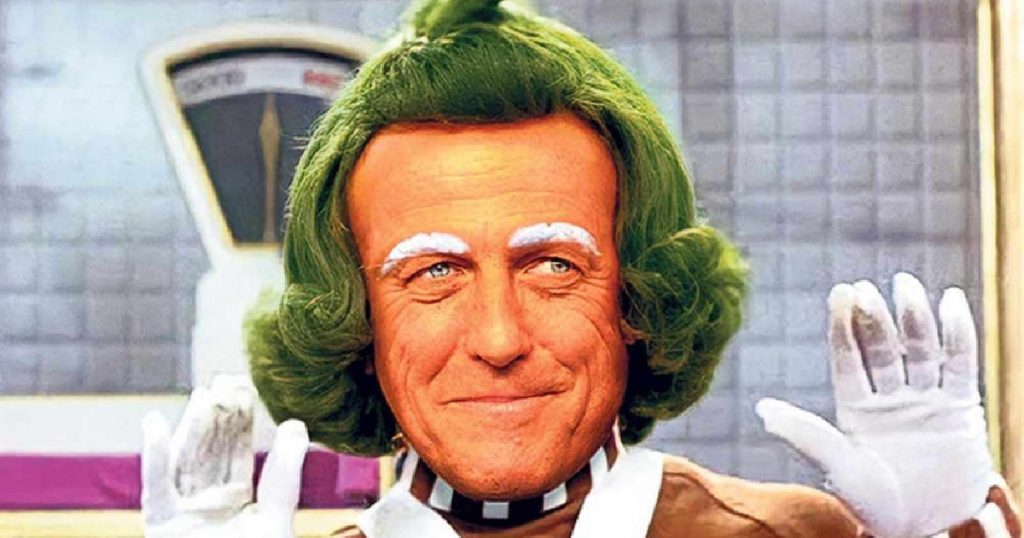The casting of Hugh Grant as an Oompa Loompa in the upcoming Warner Bros. film “Wonka” has drawn criticism from actor George Coppen, who has dwarfism. Coppen expressed his concerns in a recent interview, stating that actors with dwarfism often feel marginalized in the entertainment industry. As the film’s trailer was released, showing Grant’s portrayal of the Oompa Loompa, the casting decision raised questions about representation and opportunities for actors with dwarfism. This issue highlights the importance of diverse and inclusive casting in the film industry, as performers with dwarfism seek more substantial roles beyond traditional portrayals.
George Coppen, a 26-year-old actor known for his roles in Disney+‘s “Willow” series and Netflix‘s “The School for Good and Evil,” discussed the challenges faced by actors with dwarfism in the entertainment industry. He emphasized that many performers with dwarfism aspire to be offered diverse roles in dramas and soaps, but they often find limited opportunities. Coppen expressed the feeling of being pushed out of the industry they love, with doors being closed instead of opening up new opportunities.
READ MORE: Jennifer Lopez’s Fabulous Birthday Celebration at 54: Dancing on Tables and Teasing New Music
Hugh Grant’s casting as an Oompa Loompa in “Wonka,” a prequel to the 1971 film “Willy Wonka and the Chocolate Factory,” has caused controversy due to the portrayal of the character. In the previously screened footage, Grant’s Oompa Loompa is depicted as being around 20 inches tall and is trapped in a glass case. This representation has raised concerns about the portrayal of characters with dwarfism in the film.
George Coppen expressed surprise and disappointment with the portrayal of Grant’s character, stating that the actor’s head was enlarged to appear bigger. This alteration to Grant’s appearance in the role has sparked criticism and questioning about the choice to cast an actor without dwarfism to play a character traditionally associated with performers of shorter stature. The issue of representation and inclusive casting is an ongoing conversation in the film industry. Historically, characters with dwarfism, such as the Oompa Loompas, have often been played by actors with the condition. While these portrayals may have been widely accepted in the past, there is now a growing demand for more authentic representation and opportunities for actors with dwarfism to play a broader range of roles.
The film “Wonka” presents an opportunity to address these concerns, but the casting decision has raised questions about the film’s commitment to diversity and inclusivity. As George Coppen and others advocate for more substantial roles for performers with dwarfism, it becomes essential for filmmakers and casting directors to consider diverse talent and provide equal opportunities for all actors, regardless of physical attributes. Director Paul King defended the casting of Hugh Grant as the Oompa Loompa, praising Grant’s comedic abilities and calling him the perfect fit for the character. However, while Grant’s talent may be well-regarded, the controversy highlights the need for filmmakers to balance their creative vision with sensitivity to representation concerns. As the film industry evolves, the call for authentic and inclusive casting continues to grow, pushing filmmakers to consider how their casting choices impact diverse communities.
The casting of Hugh Grant as an Oompa Loompa in “Wonka” has ignited discussions about representation and opportunities for actors with dwarfism in the entertainment industry. George Coppen’s criticism sheds light on the challenges faced by performers with dwarfism, who seek more diverse roles beyond traditional portrayals. As the film hits theaters, the conversation about inclusive casting and authentic representation will likely continue. It is an opportunity for the film industry to reflect on its practices and work towards providing equal opportunities for actors of all backgrounds and physical attributes. In doing so, the industry can take significant steps towards embracing diversity and making meaningful progress towards a more inclusive future.
